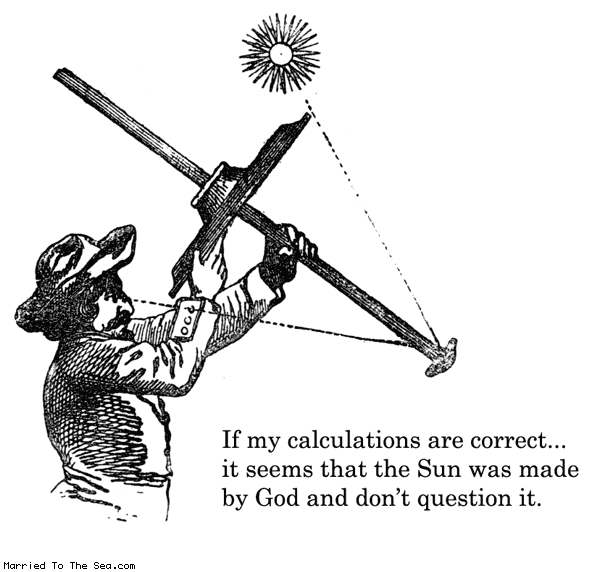So how, then, did we get from the original author(s)’s writings to today’s version(s) and how do we determine the accuracy?

Imagine one copy manually transcribed from an original by hand.
Now imagine that process occurring many times over… tedious, laborious copying. We’re talking copies OF copies OF copies OF copies, etc. -- created by these scribes and monks of indeterminable ability in the hopes that their copies would one day be spread to all cities. They were transcribed with feather and ink onto baked clay tablets, on sheepskin parchment, on papyrus reed, and later on calfskin. In essence, we’re all relying on copies of original manuscripts that are long since gone. And the “sources” of our bible were also copies, not of the original manuscripts, but of copies. You get the picture.
Read more...
It is said that the copying was done with great and conscientious care. Really? Well, I’m sure that most of them TRIED real hard.
New Testament scholar Bart Ehrman (author of several books on textual criticism including 2005 bestseller Misquoting Jesus ) contends that these errors multiplied over many centuries pose more than just an exercise in translational gymnastics. To paraphrase from a lecture series at Stanford University, Ehrman concludes that due to the errancy of omission, intention ("reconciling inconsistencies"), language barriers, and undeniable mistakes there are more errors in the New Testament alone than there are words in the New Testament. Read that sentence again. That should be enough to make even Billy Graham stop and say, WTF?
Despite Ehrman’s certainty that of the hundreds of thousands of errors/changes among the copied manuscripts – most were insignificant, although, the very meaning of a number of critical passages have been forever altered or fabricated. This takes contradiction and error to a whole ‘nuther level. Further, Ehrman contends, “The King James was not given by God but was a translation by a group of scholars in the early 17th century who based their rendition on a faulty Greek text.” You may not agree with both parts of that quotation but you cannot disagree with the last.
It's pretty safe to say that 99% of us could not read the bible in its original Greek text form. But the fact is indisputable; we do not have an accurate bible based on the copies and partial copies made over the centuries.
So how COULD we know what He meant if we don’t know what He said to begin with? And my question doesn’t even consider the legitimacy of the original tales shoe horned in to encapsulate a divine story.
A better question would be: Why is god such a terrible communicator?
This is a question that must be asked. The conveyance of an omnipotent being’s message should carry a little more cogency and less controversy than what was passed on to us. How can a god fail to convey his message to all peoples without error, dispute, or miscommunication? If god wanted me (or any human ever for that matter) to follow him, believe in him, and worship him -- it stands to reason that he wouldn’t have allowed this problem to proliferate.
"The problem with communication is the illusion that it has occurred." George Bernard Shaw nailed that quote. We have copies of stories of mostly unknown, ancient origin -- translated, altered, fabricated, misinterpreted, and nicely bound for us to take at face value. With a message so imperative that a false interpretation means the pits of hell fire for us -- I can definitely understand Pascal’s Wager. It’s a roll of the dice. Maybe that should be the definition of faith?
If we define inerrancy as free from error, infallible I think we have some issues to deal with. All we would need to find is one error to prove the hypothesis that the bible is, in fact, errant. If this is proven, the bible could not possibly be the Inerrant Word of God and would result in a book created by human (read: fallible) beings many hundred years of years ago. Makes sense, right?
Well, what do we define as an error? See, I’m one step ahead of the semantics game! If we use the same source to define error then we could conclude that any deviation from accuracy or correctness from the original manuscripts constitutes an error. Do you not believe that the bible you have on your nightstand contains deviations from accuracy?
With emotional attachment, many will still cling onto the idea of an inerrant bible while conceding translational inadequacies. This baffles me.
But understandably, most would continue the argument pointing out that despite perceived errors the truth is preserved. To quote the great Kip Dynamite, "...like anyone can even know that."
Did god then inspire an errant bible? Did god not understand that an errant bible would mar his message? And again, how do we know WHAT the truth is meant when we don’t know WHAT was originally written? I am not aware of similar textual criticism in the Qur'an but I’m confident that it exists. But if I were to say, ‘Look, it is proven that the original manuscript of the Muslim holy book is filled with thousands of errors!’ I would wager that most would easily dismiss it as another religious fairy tale. I think it’s time we consider that the Christian bible is a close relative.
Donald Morgan, author at Infidels.org, compiled a lengthy list of potential problems that everyone must examine for themselves. I would love to comment on each of his listed inconsistencies, but as you will see, the list is exhaustive. I challenge you to read through these inconsistencies and prayerfully consider the ramifications.
























